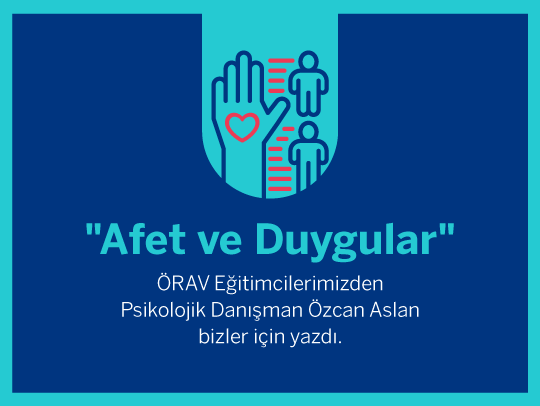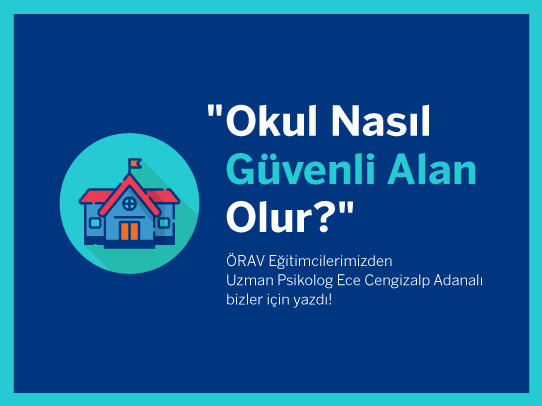19 February 2023
Better Together Seminars - 1 / Good Feeling School - Clinical Psychologist Filiz Yurtseven
Ece Üstgel, one of ÖRAV Educators, compiled the highlights of the "School that makes us feel good" seminar with Clinical Expert Psychologist Filiz Yurtseven for us.
- It is important to realise and remember that we are not alone and to join forces as much as possible.
- School is a protective and supportive environmental factor for children.
- One of the areas where individuals increase their psychological resilience the most is the environmental factor.
- In traumatic times, all stakeholders in the school should create a positive and constructive climate within the school.
- In order to be effective in this process, teachers should first pay attention to self-empowerment with activities that will increase their well-being.
- Teachers should do breathing exercises for well-being, start to return to routine and include physical stretching movements.
- Each trauma is unique and important in itself and for each person.
- Trauma is like a fingerprint. It manifests itself in different behaviours for each person
- Each child may show trauma in different ways. We must accept all children who show it through humour, sadness, withdrawal, indifference, depression or aggression.
- We may observe confusion, difficulty in making decisions, problem solving and difficulty focusing on the lesson.
- In early childhood, they will mostly reflect this through their behaviour and play. If they have separation anxiety from their parents, we can pay attention to the presence of children with their families in the garden in the first place.
- As they need more physical touch and hugging, they may exhibit the opposite situation.
- It is very likely that children in the primary school period will experience this situation especially emotionally intense.
- During adolescence, they may manage their emotions in a slightly different way and may encounter self-destructive situations such as substance abuse or joining gangs.
- It is very important for teachers to empower themselves in this process and then to learn about the traumatic characteristics of the age group they work with.
- We should get enough information from the parents before the first meeting about how much the group we will work with was exposed to the earthquake.
- In the school climate, we need to create a solid framework in which children can reorganise their emotions.
- It is very important for students to have a regular flow in the school climate with co-operation and solidarity.
- We need to create a school climate where children feel safe starting from the school garden.
- Instead of divisive discourses such as "we have new friends", we should focus on what we can achieve together and on creating a "we" language.
- We can start with learning names by doing circle work.
- Instead of focusing on academic success on the first day of school, we should allow plenty of play activities.
- Focusing on the fact that emotions can be transformed and expressing ourselves clearly will support children to develop a correct road map.
- Considering that there are family losses, we can use the phrase "to your parents" instead of "to your parents".
- The main thing we should focus on is what the child needs.
- We should always remember how important it is to create a safe school climate as we are together with children who need to hear and feel that they are safe.
- Providing real and concrete information that the building they are in is safe will make it easier for children to enter the school building.
- It is very important to develop a common language with children to make them feel safer.
- It is also very important to talk by making eye contact, to make them feel that we are ready to listen to them, and to open a postponement area for children who we think are not ready.
- In physical education classes: organising activities such as team games where they can use their bodies with physical exercises and team games will pave the way for children to feel success again and keep them in the flow.
- We can use appreciation sentences, supportive sentences and positive sentences more.
Clinical Psychologist Filiz Yurtseven gives concrete suggestions to our teachers on how we can support our students who will return to their schools in the "Feeling Good School" seminar.
You can watch the entire seminar on our YouTube channel.




